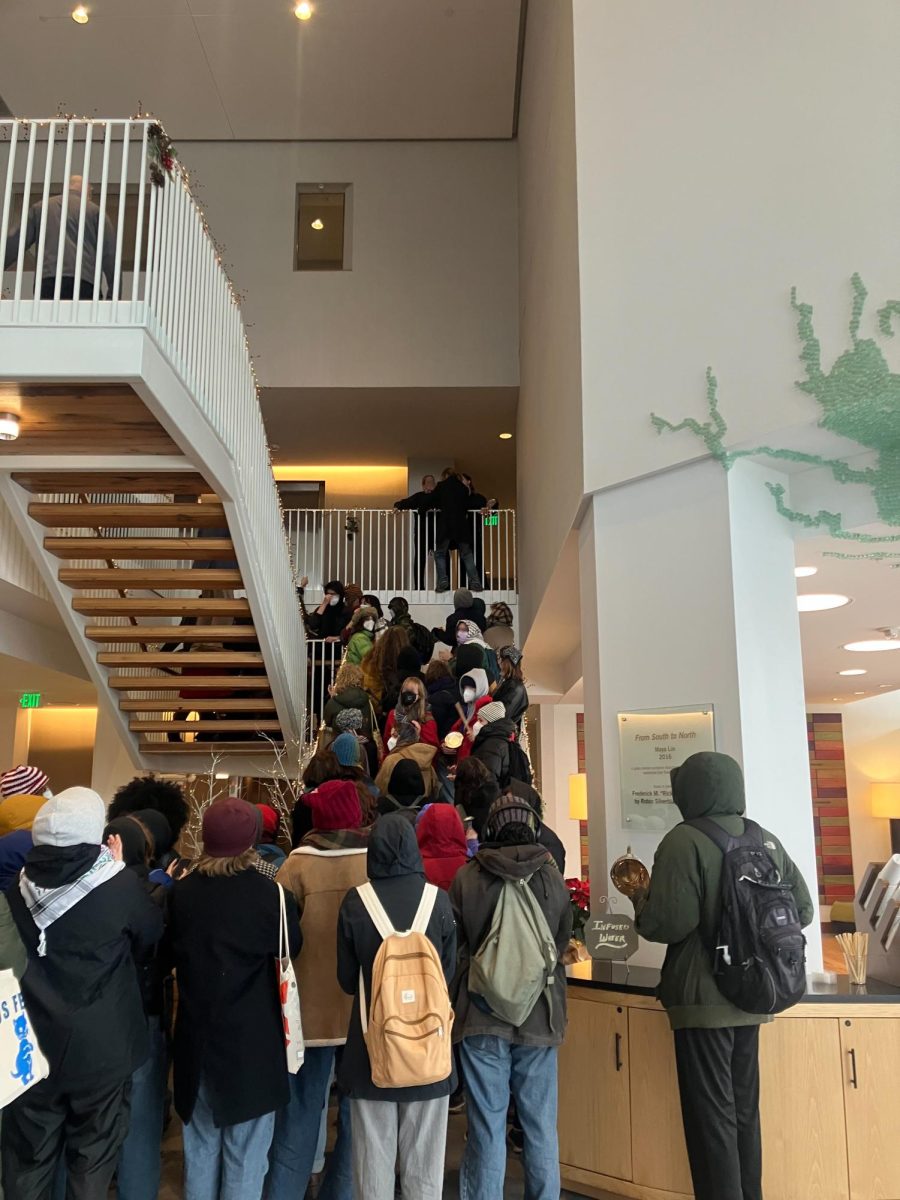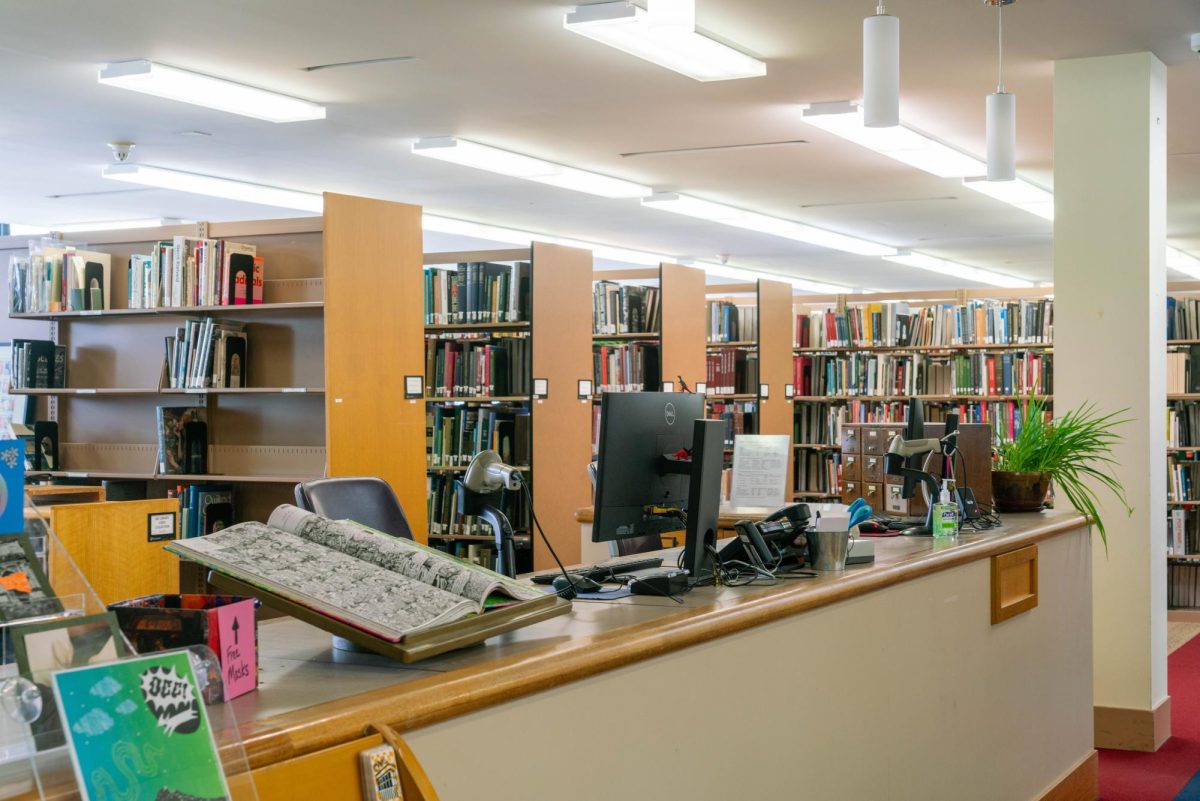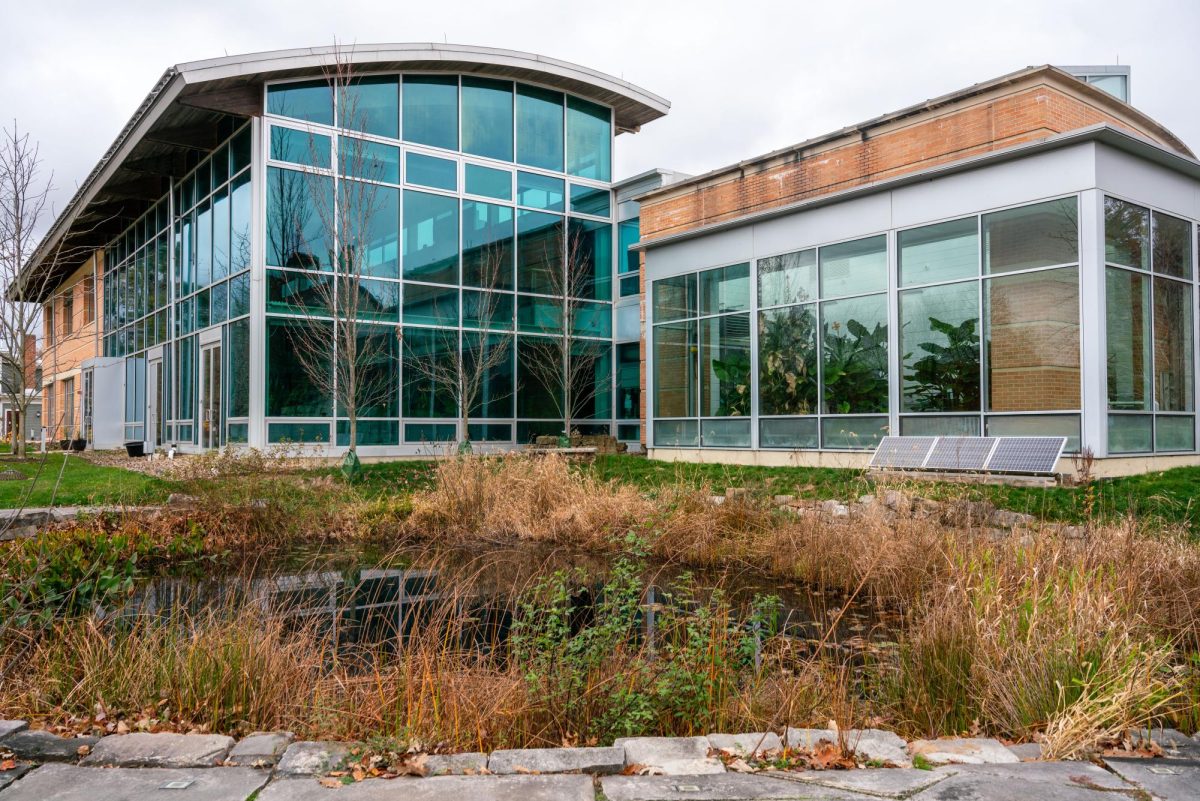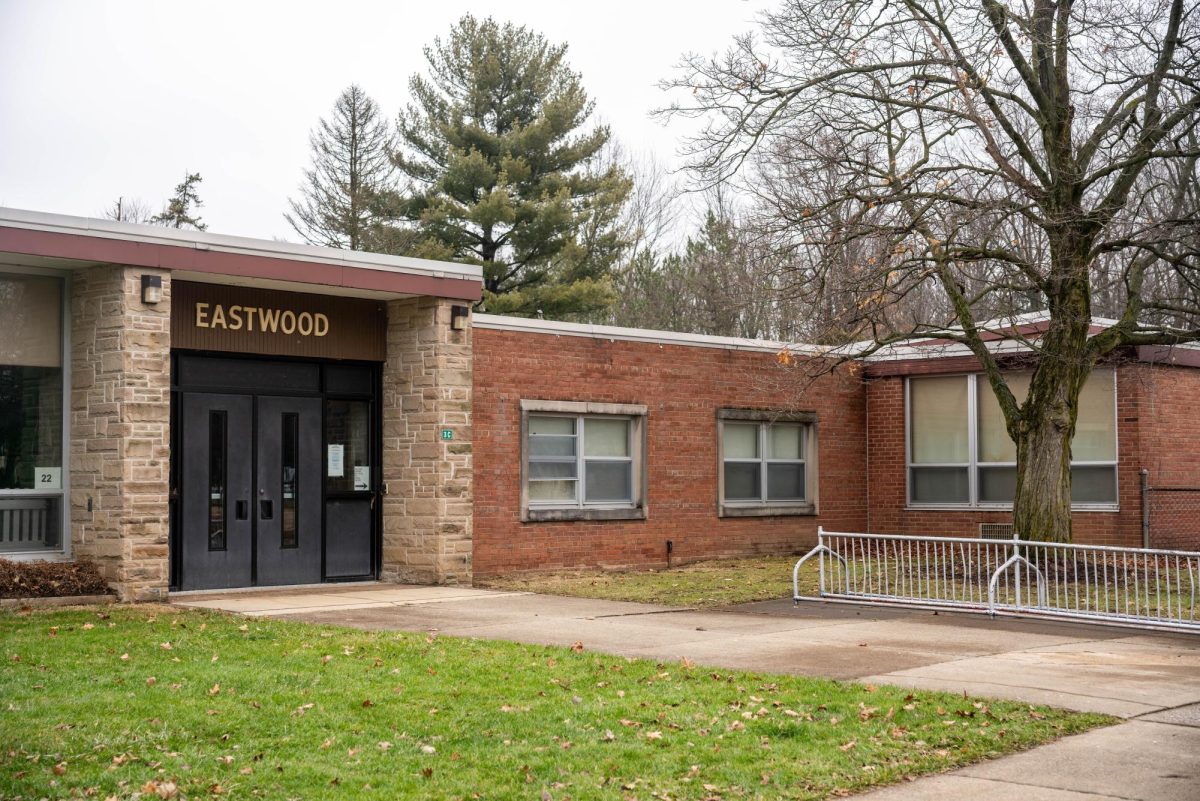Around 12:30 p.m. Thursday, over 50 students entered the lobby of The Hotel at Oberlin, banging pots, pans, and drums, and chanting to call for divestment from Israel amidst the ongoing war in Gaza. The protesters filled the stairwell up to the point where administrators and campus safety officers stood blocking their way to the second floor where the Investment Committee of the Board of Trustees was meeting. Close to 1p.m. protesters were told to leave by police, after which they quickly dispersed.
The protest is the largest demonstration against the Israeli invasion of Gaza since the College turned down the proposal to divest from Israel submitted by Students for a Free Palestine last summer.
College second-year Emma Kellstein, who participated in the protest, spoke about how they want the Board to respond.
“I would like to see the Board be transparent about their financial investments,” Kellstein said. “We’re just here demanding transparency about where the endowment of Oberlin is invested. We just want to know more. We’re looking for information right now with the ultimate goal of divestment.”
In an interview with the Review last March, Board of Trustees Chair Chris Canavan, OC ’84, said that the endowment is invested in funds overseen by fund managers unaffiliated with the College, rather than in any individual companies. This means that Oberlin or its Investment Office is not at liberty to disclose the financial positions of Oberlin’s endowment because it is considered the intellectual property of the fund managers.
Unlike many past demonstrations which were organized by SFP, Jews for Palestine, or other student organizations, Thursday’s protest came about through an independent group of students.
“I think that a lot of these students are probably in groups such as Jews for Palestine or Students for [a Free] Palestine, but the organizing body of this protest was not affiliated with either of these groups,” Kellstein said. “It was an autonomous group of students united over this issue. It’s important to stress that just because this is an issue that affects the whole campus and a lot of students care a lot about it. … It doesn’t even rely specifically on an organization just because there’s so many students who want to be involved.”
On Tuesday, the same group held a similar demonstration in front of the Cox Administration Building. From 5:30-6:30 p.m. around 30 students made noise with pots, pans, and drums, chanted, and sang.
On Thursday, students gathered in front of the Tappan Memorial Arch amid flurries of snow. They marched across Tappan Square to the Hotel where they entered through the admissions office and proceeded into the lobby. Campus Safety arrived quickly and stood between students and administrators in the stairwell. As students tried to pass, officers blocked their way. Several physical confrontations between students and officers occurred.
“Campus Safety, on behalf of the College, initiated their standard response to manage a protest at The Hotel at Oberlin,” Associate Dean of Students Thom Julian wrote in an email to the Review. “That includes ensuring that only authorized guests access the second floor, not allowing blocking of guest egress, and limiting the interference with the essential functions of the Hotel as a private business. The College remains committed to the free expression of students while ensuring that free expression does not unreasonably interfere with the business of the College and its partners.”
Two students tried to climb onto the balcony where administrators were standing but stopped before they made it over the railing. At around 12:50 p.m. a single Oberlin police officer arrived on the scene and shouted for students to leave. The protesters quickly dispersed and no arrests were made. Additional Oberlin police officers were standing near the door. Open Expression Observers from the College were also present.
Julian explained the College’s rationale for its response to student protesters.
“Protests that occur at The Hotel at Oberlin require additional considerations, given the hotel’s function as a private business,” he wrote. “Incidents that jeopardized the health and safety of students, hotel patrons, and staff occurred, including students attempting to climb the exterior of the staircase to gain access to the second floor.”
After leaving the Hotel, students gathered outside where a speaker said they would not stop action until divestment was achieved.








